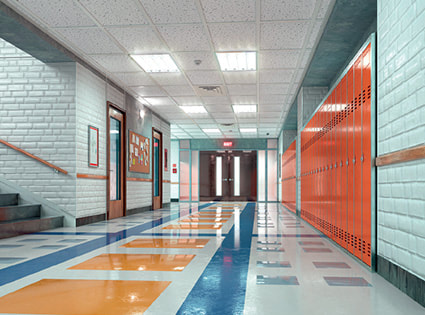Anchorage elementary school closures discriminate against the most vulnerable families
“We’re facing the worst education crisis in history,” says Less GaraSix months after taking office as the Anchorage School District’s new superintendent in April 2022, Jharrett Bryantt has recommended, last October, closing six elementary schools, five of which teach children whose families are most economically and socially vulnerable. Decisions on school closures may continue to be made through December, Bryantt has acknowledged by email to school staff and affected families.
The closures affect Abbott Loop Elementary, Birchwood Elementary, Klatt Elementary, Northwood Elementary, Nunaka Valley Elementary, and Wonder Park Elementary. All but Birchwood Elementary are Title I schools. Or what amounts to the same thing: five of these six elementary schools have a large share of students who qualify for free or reduced meals. There are about 300 Hispanic students attending the elementary schools, with Klatt Elementary having the largest number (106.) The decision for these closures is hardly compatible with one of Jharrett Bryantt’s first statements upon taking office as superintendent: “our families will applaud the district for holding true to the promise that all ASD graduates will be prepared for careers, college and life from kindergarten onward.” Now, Bryantt justifies the proposal by saying that “this is an incredibly emotional and painful issue to hear, particularly after the immense strain placed on our community due to the pandemic.” The closure of these six elementary schools (which could be more by December, according to the Superintendent) is intended to reconcile the Anchorage School District’s long-standing $68 million budget shortfall. The closure will amount to clearly little cost cutting to bridge what some School Board representative have called a “fiscal chasm,” as it will represent a savings of about $4 million, an amount far short of the total deficit. Closing each elementary school will save the district just over half a million dollars; that’s $3.4 million or, at most, just $4 million, according to CFO Jim Anderson, which represents 5% of the total deficit. The announcement of the closure has caused “frustration and sadness.” In his letter, Superintendent Jharrett Bryantt has pointed to declining enrollment and the state’s “flat” education funding as causes. Funding that, for Republican Governor Mike Dunleavy, is not such funding, per se, but rather a “management” problem. The fact is that declining enrollment has caused the Anchorage School District to receive less funding and many schools are at 60% of capacity, or even less, making it difficult and expensive to provide educational materials and student services. In the Anchorage School District, there are 18 schools below 65% capacity, which have lost about 5,000 students since the 2012-13 school year. These underutilized facilities need maintenance costing about $24 million. For Jharrett Bryantt, the Anchorage School District has been receiving “insufficient and unstable funding” from the state in recent years and inflation is causing a dollar today to not have the same purchasing power as it did five years ago. Over the past seven years, our state has increased the BSA (Base Student Allocation or what the school district receives per each student enrolled) only once. In recent years, the budget gap has been “bridged” by Covid-19 pandemic relief funds, but inflation has driven up the cost of education and this funding has now expired. The announcement of the closure of elementary schools in the school district came just weeks before November 8, the day of the midterm elections, which has been used by the independent candidate for governor, Bill Walker, to say on social networks: “This is Dunleavy’s Alaska,” while Heidi Drygas, Walker’s running mate, has pointed out that the proposed closures are “what Dunleavy does.” For his part, Democratic gubernatorial candidate Les Gara, a former Anchorage legislator, noted that “we are facing the worst education crisis in the state’s history.” Mike Dunleavy, a former teacher, superintendent, and school board member for the MatSu school district, proposed in 2019 a school funding cut of more than $300 million, which drew the ire of constituents, forcing him to withdraw that proposal. |
